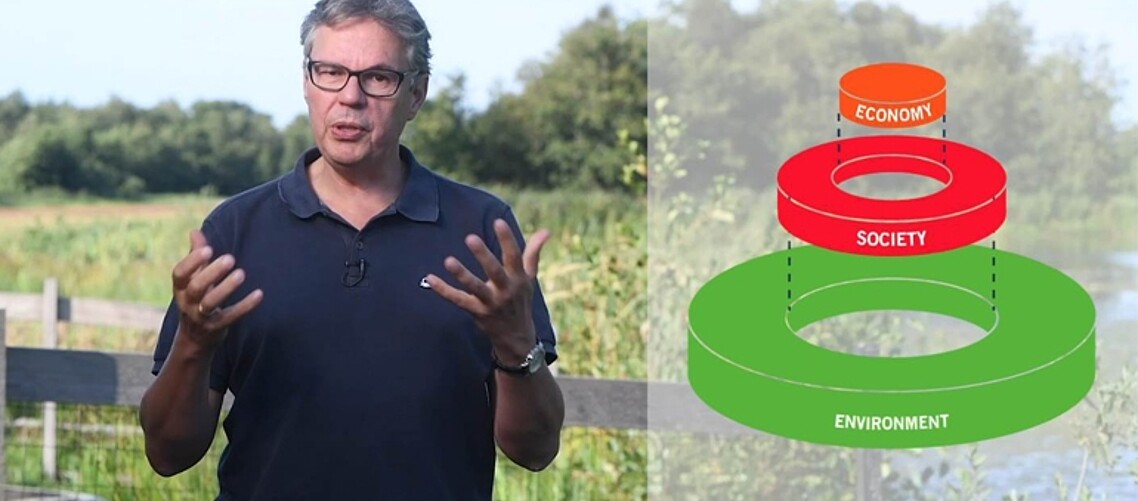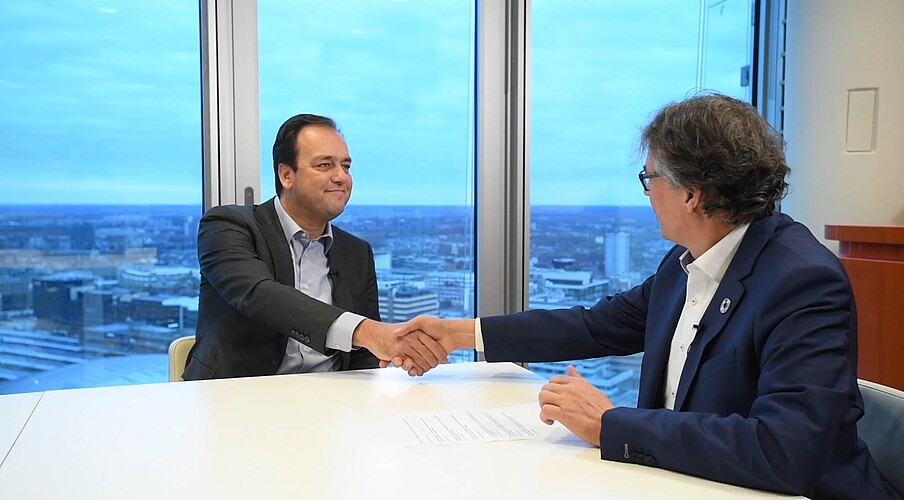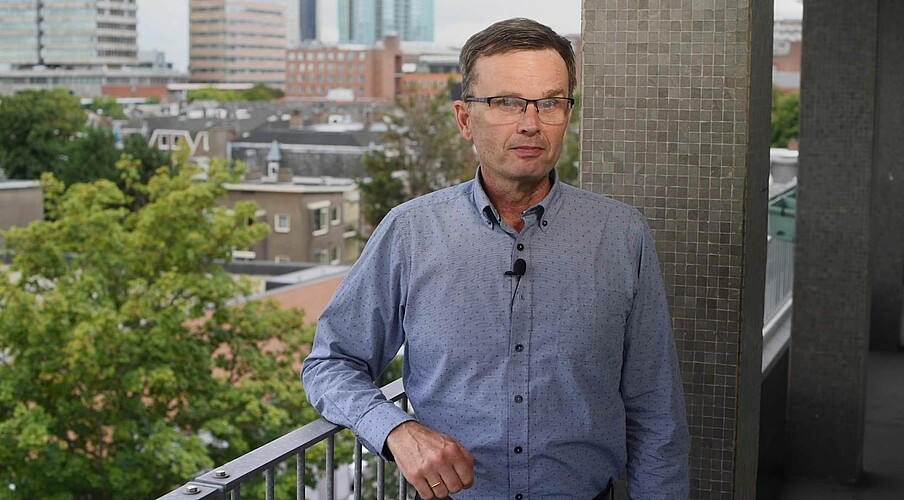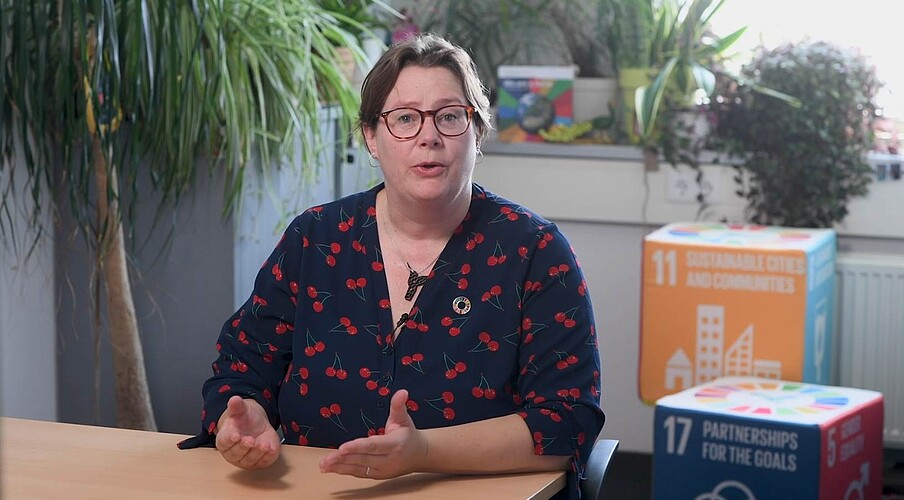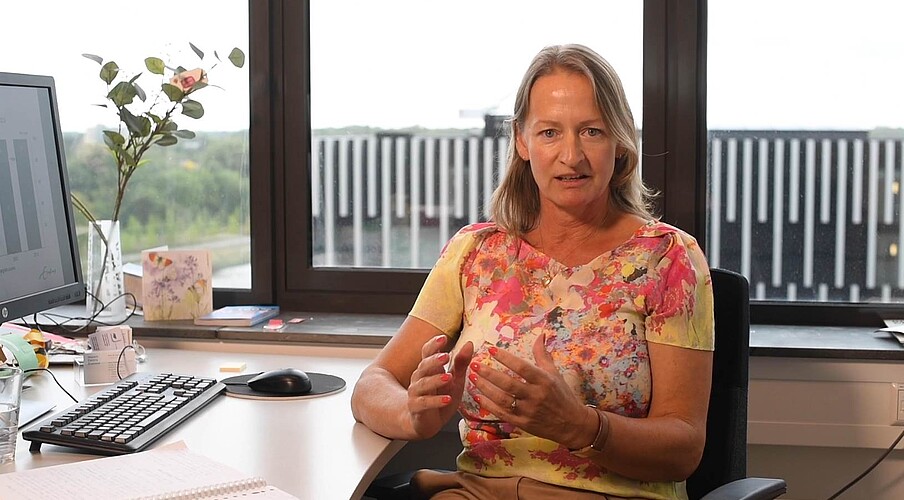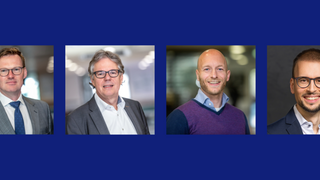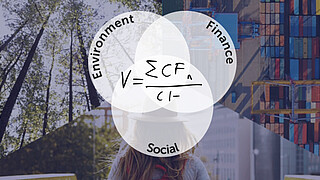It’s aimed at people working in the financial industry, as well as policy makers and supervisors in the financial sector. It was co-created by the Erasmus Platform for Sustainable Value Creation (EPSVC) and academics from RSM and Erasmus University Rotterdam, financial institutions and the broader financial industry primarily for students of finance and sustainability – and in fact it is recommended to RSM’s own master students as an extra opportunity to add to their knowledge when they follow the master elective on Sustainable Finance. The Principles of Sustainable Finance course is hosted on the Coursera platform. Its co-creators include RISBO, an independent institute for research, training and advice.
RSM has a commitment to the UN’s 17 Sustainable Development Goals, which it uses as a framework for its mission to be a force for positive change in the world. Eva Rood, Director of RSM’s Positive Change initiative said: “This MOOC aims to speed up the transition towards a more just, equal and sustainable world that we so badly need, by showing what the principles for sustainable finance are and how they contribute to the UN’s SDG 2030 Agenda for Sustainable Development. I am proud that we have reached the milestone of 15,000 learners – let’s see if we can get to 100,000.”
How sustainable business starts
This MOOC (a ‘massive online open course’) spreads the message that sustainable business starts with sustainable asset allocation. It has been well-received by financial institutions in RSM’s network, as well as by policy makers and supervisors, and has been used by more than a thousand users per month since its launch.
EPSVC project manager Dieuwertje Bosma said: “It took almost a year to put together and we shot more than 40 videos to make it. This course was really needed because when we started, even though Coursera is a global platform that offers academic courses from universities all over the world, there were no other courses on sustainable finance.”
Without losing financial returns
Finance has long been seen as an obstacle to tackling the world’s challenges even though the financial sector has the ability to shift its approach to create a more sustainable economy for a healthier planet. The way to building an economy that works for everyone means transitioning to sustainable business models without the loss of financial return. This nine-week MOOC explains why that’s necessary and how finance can be used to create a sustainable economy that’s based on value creation, and drawing on the UN’s 17 Sustainable Development Goals, sustainable banking and asset management, effective engagement, sustainable scenario analysis and long-term value creation.
Dieuwertje Bosma explained: “The topic is still in its infancy. It is so important that financial institutions allocate their capital towards sustainable business – it’s only then that the transition to a sustainable economy can be made. Financial institutions are not abstract organisations: they’re investing our money. The way ‘my’ money is being used directly affects the sustainability transition, whether it’s from my pension fund or my bank that uses my savings to loan to companies. This is why it’s so important that we have more education about the relationship between finance and sustainability in general. And this is why it’s such a relief to know that 15,000 learners have already started the MOOC.”
Tools for a proactive approach
The course contains online study assignments as well as lectures and briefings filmed at several locations; at Dutch central bank De Nederlandsche Bank (DNB); at asset management firm Robeco; and at the farm belonging to RSM Professor of Banking and Finance Dirk Schoenmaker who is an expert on sustainable finance; and on the university’s campus and in its studio.
Prof. Dirk Schoenmaker said: “The real challenge for sustainable finance is to switch from a passive, risk-driven approach to an active, opportunity-driven approach. In that way sustainable finance can really contribute to speeding up sustainable development. The MOOC provides the tools for this pro-active approach.”
